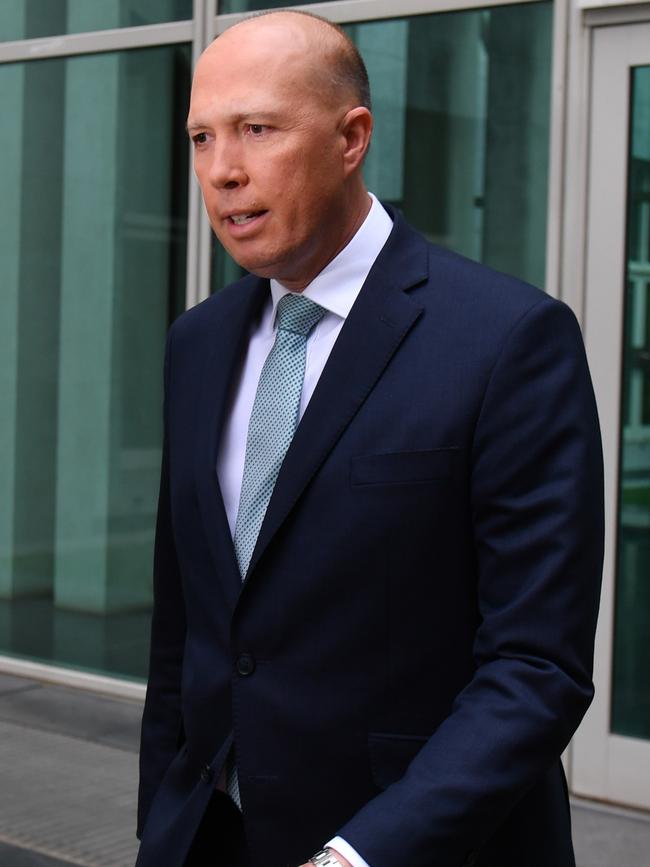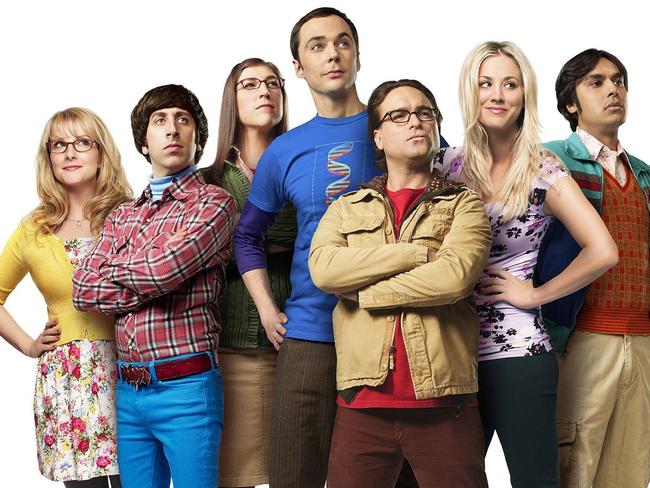Editorial: Horror show can’t continue
AUSTRALIANS were consumed by yesterday’s extraordinary events in Canberra, where an anticipated resolution of our leadership crisis instead delivered only a further promise of chaos and hostility.
Opinion
Don't miss out on the headlines from Opinion. Followed categories will be added to My News.
AUSTRALIANS were consumed by yesterday’s extraordinary events in Canberra, where an anticipated resolution of our leadership crisis instead delivered only a further promise of chaos and hostility.
So astonishing were those events that many may have missed other news, including a particular item on the entertainment pages. At first glance, the announcement that popular US sitcom The Big Bang Theory will end its 12-year run in 2019 would seem to have little to do with Australian politics.
But it is worth considering the show’s longevity relative to our federal political scene.
The Big Bang Theory first aired in September 2007, when John Howard was still in power. It has survived, with the same core cast, through the prime ministerships of Kevin Rudd, Julia Gillard, Rudd again, Tony Abbott and Malcolm Turnbull. It will still be on the air during the reign of whoever succeeds Turnbull as our next PM.


We now have proof that even Hollywood, for all of its egomania, powerplays, gossip, money grubbing and backstabbing, can actually hold things together in a more stable fashion than our federal Parliament.
This is a terrible state of affairs, and yesterday Malcolm Turnbull set out to make it even worse. The Prime Minister’s Parliament House press conference speech was presented in a light tone, but conveyed so many conditions and qualifications on Turnbull’s likely ousting that it amounted to a declaration of hostility towards his entire party. Most notable among these was his demand not just for 43 MPs to call for a party-room meeting, but that those 43 identify themselves.
“It’s important that people are accountable for what they’re doing,” Turnbull declared.
This demand would effectively turn a secret ballot into an open vote. It would also provide the Opposition with substantial ammunition against any signatories during the coming election, whenever it may be held.
Turnbull undermined Peter Dutton, the probable winner of a party-room vote, by devoting nearly 300 words to Dutton’s potential difficulties over constitutional eligibility, a matter now referred to the solicitor-general.
Remember, only a few days ago Dutton was Turnbull’s trusted home affairs minister. Now the PM is asking, with some force, if Dutton is even “eligible to be a member of Parliament”. Even by the standards of federal leadership brawls, this is incredibly harsh.
Asked if he would remain as the member for Wentworth if he lost the top job, Turnbull said that he would resign, taking a swing at former PM Tony Abbott as he did so: “I believe former prime ministers are best out of the Parliament.”

This is a shift away from views offered last week by the PM’s office, which insisted Turnbull would stick around. The message to his party and the government, again, is one of menace: If I am voted out, you will face a by-election. Good luck maintaining that one-seat majority. Even if by some freakish circumstances Turnbull does remain as PM, any chance of stability under his leadership is erased. Turnbull ended his press conference with this line:
“This is all about 25 million Australians. My job is about advancing their interests. I regret that the attention of the Parliament is not focused on 25 million Australians at the moment.” The reason it isn’t focused on Australians is because Turnbull won’t put those people or the government above his self-interest. He could have called a meeting, got his marching orders and allowed the rebuilding to commence. Instead, he very deliberately generated an even greater level of discord and rancour. This isn’t a sitcom. It’s a horror show.
Free press still prevails
THE media does not exist to make politicians happy. On this point, even some within the media seem unclear.
It is a central role of the press to present criticism and analysis of politics and politicians from a variety of perspectives.
The Australian media covers the entire political spectrum. Readers and viewers may draw on opinions published in any number of newspapers, aired on radio and television and presented by websites.
Those opinions best argued and most cogently expressed will invariably prove more influential than others.
If those arguments are in opposition to the government of the day, so be it.
If they are precise and persuasive, they will prevail.
